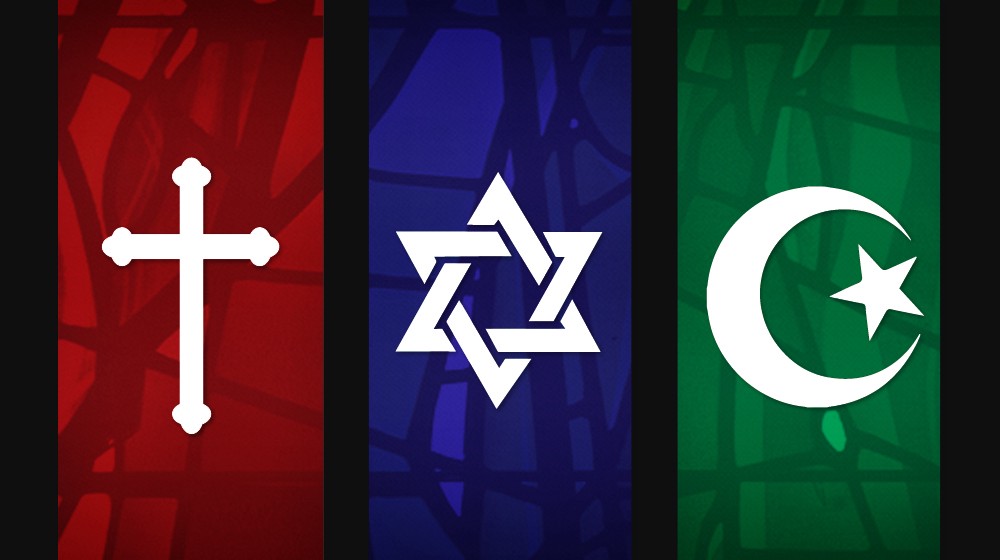
Do Muslims, Christians, And Jews Worship The Same God? (Part 3)
It is frequently believed that the God of Islam is violent and warlike, in contrast to the God of Judaism and Christianity, who is loving and merciful. Despite the apparent differences in how they practice their religions, Jews, Christians, and Muslims worship the same God. Yes, Jews, Christians, and Muslims do believe in the same God. All three religions have basically the same moral message. But there are also significant differences, and their relationship has oscillated between hostility and peaceful coexistence throughout history. Judaism, Christianity, and Islam are what one might call sibling religions. Christianity is the largest of the three, with between 1.7 and two billion professors in the world. Muslims are just over one billion, and the Jews are about 18 million. However, they have common roots, meaning there are remarkable similarities between the three religions and essential differences. Let’s check all about it in this article! This is a continuation of the second part of this article. If you haven’t yet read the first and second parts, do it now!
According to Judaism, God chose a people to make contact with the people. The people of Israel or the Jews became God’s “prophet people,” God’s mouthpiece among the nations. The people of Israel made a covenant with God through Moses, and as a sign of that covenant, he received the tablets of the law. It is a symbol of the task of spreading God’s will among the nations. The double commandment of love sums up God’s will: You shall love God above all things and your neighbor as yourself. The Jews have received several other commandments to keep the people together and help them remember their mission.

Christians believe that this revelation has been expanded or supplemented by Jesus. According to Christian belief, it is God himself who reveals himself in Jesus of Nazareth. He is executed by crucifixion but rises from the dead. According to the Christian faith, this means that death has been defeated. Man can grow into a spiritual life that is not limited by death. This life is therefore called eternal life. Muslims see both Moses and Jesus as essential prophets. They have a high reputation in the Qur’an, but the message that the prophets preached throughout human history has been distorted and distorted. God wants out of love to give people a complete revelation, which will not be corrupted. Therefore, he lets his message be revealed to the Prophet Muhammad. It contains the message previously revealed from Adam, the first Muslim according to the teachings of Islam.
All three religions agree that God wants to help us live right and get away from evil, even if evil is not a power. God’s love as it appears in creation and revelation should give us inspiration and strength. But anyone who fails can be forgiven. Also, on that point, all religions are in agreement. The only thing God asks of us is that we see our responsibility and our ability to act right. The one who blames himself has a more challenging time getting forgiveness. God wants us to see our obligation to be able to improve.

Therefore, it is easy to see how all the crucial issues unite the religions. God’s omnipotence and mercy characterize their message. The basic ideas of ethics are the same. Humans must manage the riches of creation so that they bear fruit and benefit everyone. In detail, the differences can be large. These details often become prominent. Religions have had a great need to control the privacy of confessors in various respects. Much of this is related to the need for community. Fixed rules for hair growth and headgear strengthen the identity. Christians have no food rules but have had definite opinions about dance, card games, and suitable hairstyles. However, this “signal ethic” must not be interpreted as meaning that religions have different values. “Central ethics” unites them.
Muslims, Christians, and Jews worship the same God. But they all believe that their religion is the complete and final revelation of the same God. Therein lies the source of their unity. It is also the source of their disagreement. Belief in the truth of one religion and the falsehood of others inevitably leads to conflict between believers and non-believers, the elect and the outcast, the saved and the damned. Therein lies the seed of intolerance and violence. Therefore, the God of Muhammad, like the God of Jesus and the God of Moses, is both divisive and unifying, causing conflict between and within these religions.
Want to know what more differences and similarities? Stay tuned for the next part of this blog!
[…] differences. Let’s check all about it in this article! This is a continuation of the third part of this article. If you haven’t yet read the first and second parts, do it […]